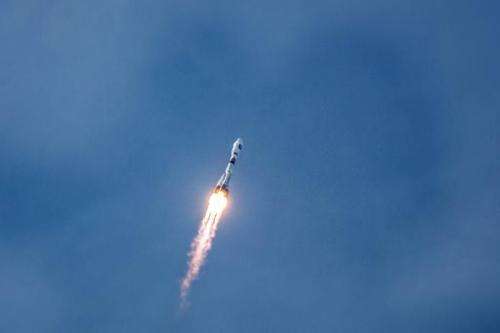New countdown for launch of European navigation satellites

Two satellites for Europe's rival to GPS, the Galileo navigation system, will be lifted into space from French Guiana on Friday a day after bad weather delayed their blast-off, launch firm Arianespace said.
The pair of orbiters will boost to six the number of satellites in the Galileo constellation and bring the network a step closer to becoming operational.
Blast-off on a Russian-made Soyuz rocket will happen from Europe's Kourou space centre at 1227 GMT, Arianespace announced in a statement, after a "favourable" turn in the weather.
"Arianespace has decided to restart the countdown" for launch to take place 24 hours after the initial scheduled liftoff, the company said.
The 5.4-billion-euro ($7.2-billion) Galileo constellation is designed to provide an alternative in case of signal failure on the existing US Global Positioning System (GPS) and Russia's Glonass, and will have search and rescue capabilities.
Four satellites have been launched to date—the first pair in October 2011 and the second a year later. The constellation will ultimately comprise 27 satellites and three reserves.
Previous delays in the launch of orbiters SAT 5 and SAT 6 had been blamed on what ESA described as "technical difficulties in the setting up of the production line and test tools".
Arianespace said Thursday it had signed a deal with the European Space Agency (ESA) to launch 12 more satellites "from 2015 onwards".
The agency has previously said that 18 satellites should be able to provide initial navigation services to users "by mid-decade", with full services "scheduled for the decade's end".
© 2014 AFP




















